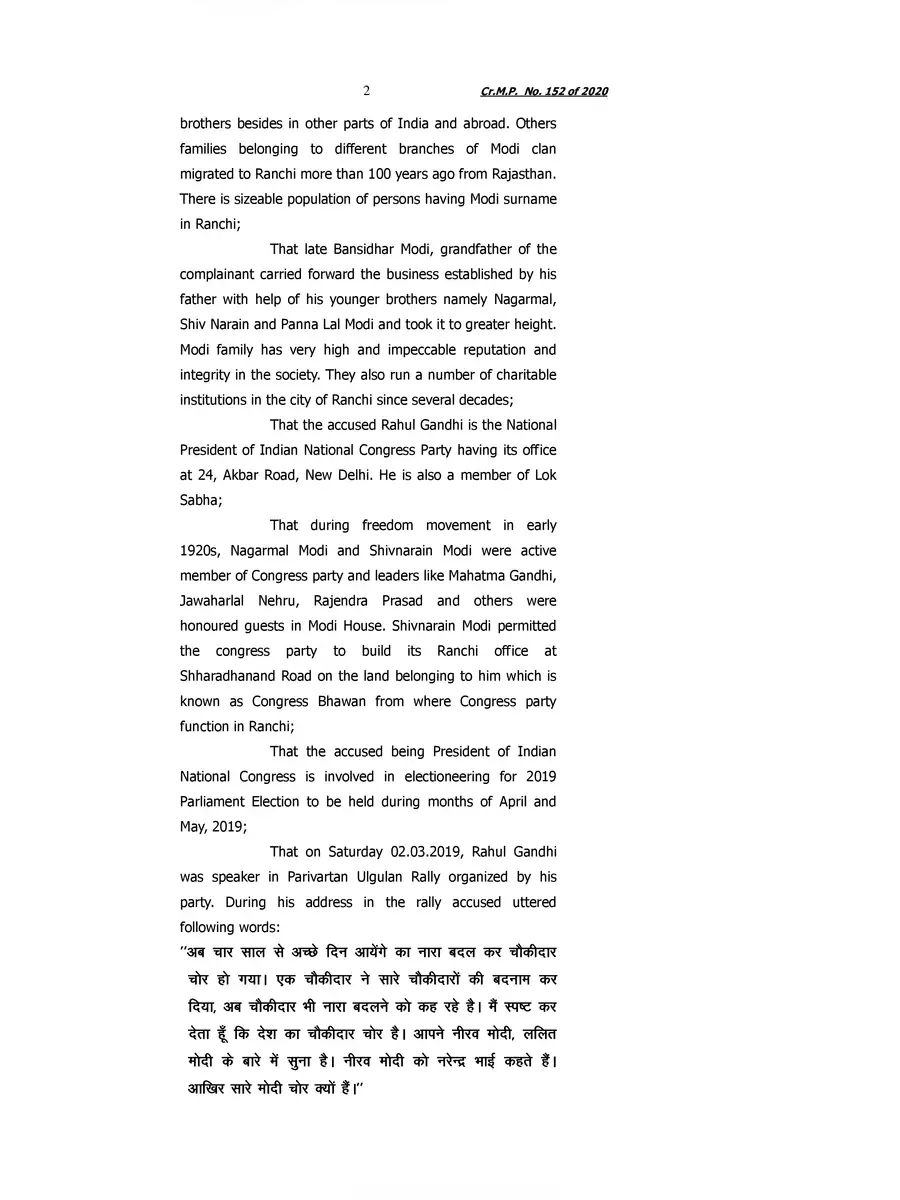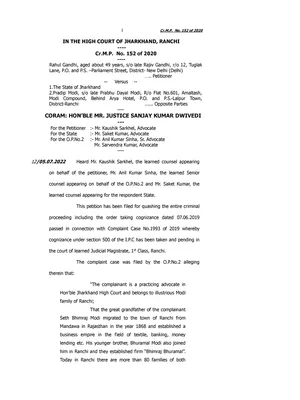Rahul Gandhi Defamation Case
BJP MLA and former Gujarat minister Purnesh Modi had filed a complaint against Gandhi. Purnesh Modi was a minister in the first tenure of the Bhupendra Patel government and is an MLA from the Surat West Assembly. Congress party functionaries assembled in Surat in a show of strength and support for Gandhi.
Surat Court of Chief Judicial Magistrate HH Varma, which held Gandhi guilty under Indian Penal Code sections 499 and 500, also granted him bail and suspended the sentence for 30 days to allow him to appeal in a higher court, the Congress leader’s lawyer Babu Mangukiya
Defamation Case Meaning
The court had last week concluded hearing final arguments from both sides, Gandhi’s lawyer Kirit Panwala had said. Gandhi last appeared before the Surat court in the case in October 2021 to record his statement, according to a PTI report.
The Gujarat High Court had stayed the proceedings in March 2022 after Modi moved a petition seeking a stay on the proceedings, primarily on the ground of lack of sufficient evidence. Advocate Harshit Tolia, representing Modi, then said, “We have now withdrawn the petition following sufficient evidence coming on the court’s record.” They said CDs and a pen drive contained the alleged material.
What do IPC sections 499 and 500 say?
Defamation is a wrong that deals with damage caused to a person’s reputation.
In India, defamation can both be a civil wrong and a criminal offence, depending on the objective they seek to achieve. A civil wrong sees a wrong being redressed with monetary compensation, while a criminal law seeks to punish a wrongdoer and send a message to others not to commit such acts, with a jail term. In a criminal case, defamation has to be established beyond reasonable doubt but in a civil defamation suit, damages can be awarded based on probabilities.
Section 499 of the IPC defines what amounts to criminal defamation and subsequent provisions define its punishment. Section 499 elaborates on how defamation could be through words – spoken or intended to be read, through signs, and also through visible representations. These can either be published or spoken about a person with the intention of damaging reputation of that person, or with the knowledge or reason to believe that the imputation will harm his reputation.
Section 500 stipulates imprisonment of up to two years, with or without a fine, for someone held guilty of criminal defamation.


